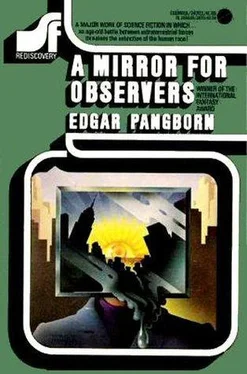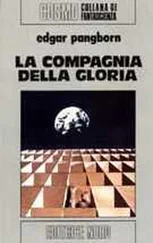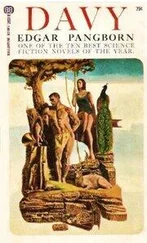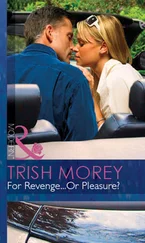I had Thursday evening dinner with the Pontevecchios, the old ladies present. Rosa’s cooking was from the heart. She was light on her feet in front of the stove, or bringing a dish to us. I wondered how much of her tiny income was lavished on that sort of thing. It was not waste: Rosa was a giver, hospitality as necessary to her as oxygen. When she could break out a fresh handsome tablecloth and stuff her guests with kindness, Rosa came glowingly alive, and then I saw not a tired worried fat woman but the mother of Angelo.
Mrs. Doris Keith, majestic with white hair, gray silk, amethyst brooch, tended to glare — daring me to remember that when I first met her she was in several yards of cotton nightgown and screeching. She stood six feet and must have been rugged when she was on the warmer side of seventy. Mrs. Mapp would always have been soft and poky, in youth a charming valentine. Yet it was Mrs. Mapp who had once taught school — she “gave” art and music at a girls’ finishing school — while Mrs. Keith had never attempted any career but housewifery and rather defensively told you so. When their husbands quit the struggle years ago these two had worked out a symbiosis plainly good for the rest of their lives. I hoped they’d be lucky enough to die at the same time. “Angelo,” said Mrs. Keith, “do show Agnes your latest work.”
“Oh, I’m not doing much of anything.”
She labored graciously to treat him as an adult. “One can’t advance without expert criticism. One must avoid getting in a rut.”
“I just horse around.” But he was petted and hectored into bringing two paintings. On his way to get them the little devil winked at me.
Three mares in a high meadow, heads lifted to the approach of a vast red stallion. Colors roared like mountain wind. A meeting of wind and sunlight, savage and joyful, shoutingly and gorgeously sexual. Angelo should have been spanked. The other painting was a mild dreamy landscape.
I had to admit to myself that the ladies were desperately funny as well as pathetic, in their painstaking comments on everything but the obvious. “The color,” said Mrs. Mapp daringly, “is — uh — quite extravagant.”
“Yes,” said Angelo.
“This leg is a trifle long. You lacked a model, I presume.”
“Yes,” said Angelo.
“Masses. Learn to balance your masses, Angelo.”
“Yes,” said Angelo.
“Now this —” Mrs. Mapp took up the landscape with enormous relief. “This is — uh — not bad. This is lovely, Angelo. Very lovely.”
“Yes,” said Angelo.
Rosa laughed. Totally unaware of embarrassment because there was none in herself, full of nothing but warmth and admiration, she couldn’t keep her hands out of his curls as he took the paintings away. Nor was she much aware of them as paintings: just as Angelo’s books were unknown country, so Rosa could not imagine that a twelve-year-old’s work might have meaning for the world outside, or that his almost contemptuous virtuosity had achieved what most adult painters only struggle for. The shield of her kindly ignorance could have its uses.
While those two helped Rosa with the dishes, Angelo showed me his room. I did not try to stay angry with him, or to explain that dazzling and shocking little Mrs. Mapp was a shabby victory. He knew it, and was already sick about it.
The room was a tiny oblong, one grudging window at the level of Martin Street, hardly space for more than his cot bed, a bookcase, an easel. It was also the studio which had produced certain triumphs that were undervalued even by himself. He selected another painting from a stack against the wall. It was simple, technically unfinished, but he was right in not wanting to do any more with it. A hand curved to shelter what it held, and what it held was a tiger, fallen, mouth curled in a snarl of uncomprehending despair at the javelin in its side. “Evidently you do believe in God, Angelo.”
He looked annoyed. “Hand could symbolize human pity, couldn’t it?” But it seemed to me that his mind abandoned the picture in the moment when I offered my half-baked interpretation. He slumped on the cot, chin in hands, woebegone. “I better apologize?”
“Not necessarily.”
“How d’you mean?”
“Might just embarrass her worse. Why not let it go? And remember for the future that nice old ladies and randy stallions don’t mix too well. Matter of empirical ethics.” I watched: old man “empirical” didn’t worry him. He knew the word without even finding it unusual.
He thought it over and sighed: “Okay.” Relieved but not satisfied. It went on bothering him. I suppose that was why soon afterward he gave the soft landscape to Mrs. Mapp with sentimental flourishes, and took it like a gentleman when she kissed him and thanked him too much.
The next Sunday came in with warm persisting rain. I spent the morning reading the Sunday paper. It was difficult to evaluate the news when I so badly needed more light myself. After a week I had no plan worth the name. I knew something of the environment; something of Rosa and Feuermann and Sharon, scarcely anything of Billy Kell. I had shopped around for a cheap used car the day after our talk in the cemetery, but found nothing safe, so I put through a call to Toronto. A justifiable expense, Drozma, if only to let Angelo discover the woods — at any rate I have been in most of the temples and cathedrals of the world, and the peace I sometimes found in them was never more than a small substitute for what there is under the arches of the leaves. I had no clue to Namir’s whereabouts and intentions. With the stolen photographs, scent-destroyer, and Martian skill in disguise, he might be planning a masquerade. Or did he only want to make me afraid of that, so that I would distrust Feuermann and others, wasting my strength in pointless suspicions? To make me turn my own ignorance and weaknesses against myself, to make me stumble from my own blindness, to make Angelo do the same — that would be Namir’s way, and his pleasure. In intelligent life, human or Martian, maybe there has always been a genuine division between those who honor the individuality of others and those who are driven to control and pervert it. A shifting division, I admit, since some of us, confused, may have a foot in both camps at times, and some spirit-killers may reform, and some of the generous may be corrupted.
From the front page I deduced that the new government of Spain would join the United States of Europe before long. That could be of profound human importance, but I let the paper sag on my knees, contemplating Angelo’s birch tree and the other painting, the wounded tiger, which he had blandly given me. I read, too, about the projected satellite station. In 1952, said the article, it had been thought that ten years would do the job — ten years and some small change amounting to four billion dollars. It seems it will take a mite longer than that, and a billion or so more. Exhaustive tests simulating conditions of outer space had hinted at possible long-term damage to the human system, which early briefer experiments could not reveal. Nothing too serious. Candidates would have to be even more critically screened, that was all. Nineteen hundred and sixty-seven, maybe, or ’68. We could have told them a little, from our ancient history, but I recognize the wisdom of our law: we must let them alone with their technological problems. It was all right to help some of the early tribes find the bow and arrow the way we did, but times have changed.
In the afternoon Feuermann came in to see me. He was visiting the cemetery again. Rain was still gray and whispering, and I spoke of it. He smiled at wet window glass. “Sun’s up beyond it somewhere.”
“Jacob” — we were on first-name basis now — “do you know anything about this Digger-Mudhawk business? Hate to see Angelo mix into that.”
Читать дальше












